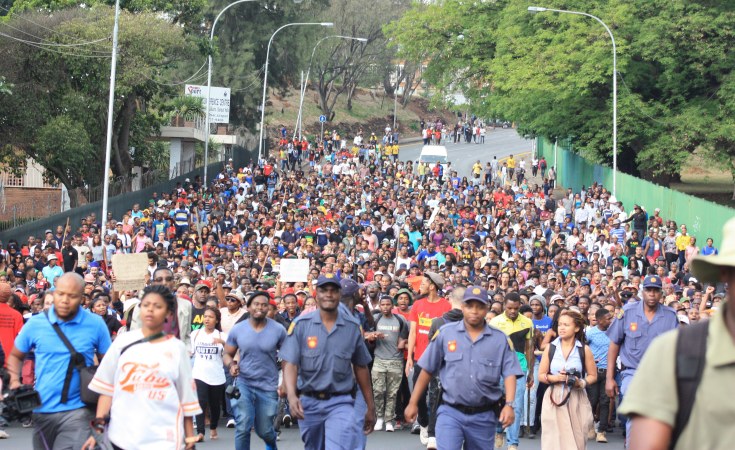Carnegie Corporation works with several South African universities, so the timing of my visit, beginning this last week of October, presented a learning opportunity. My itinerary includes meetings with representatives of four universities, including the University of the Witwatersrand, which was the epicenter of the student actions and where sporadic actions continue.
The actions -- ostensibly about university fees -- take on different meanings, depending on one's role and position in society. Preferred remedies depend on one's responsibilities and political views. At their root, though, I've come to believe that the actions are a manifestation of a loss of patience with the slow progress of transforming a culture of exclusion.
Education is widely accepted as a path to transformation, both personal and societal. South Africa has been grappling with transformation since the end of legal apartheid in 1994. The basic education system in the country continues to fail so many of its students, and this failure contributes to the continued exclusion of historically oppressed people from full participation and a life of dignity. For those who against the odds manage to meet university entrance requirements, the barrier of unaffordable fees adds insult to injury. Added to this, the high failure rate of university students constitutes a form of exclusion. Reduced access to education exacerbates inequality in a country already highly unequal. This is one reality. And so students – who joined together across race, class, and political affiliation – exercised their rights as citizens and expressed their frustration, in large numbers and with minimal violence.
On the other side of the equation, we find the leaders of the country's universities struggling to provide quality education and research while coping with variable government subsidies, inflation, and currency fluctuations, along with the usual headaches of managing large, complex organizations and the attendant demands of multiple constituencies. To these leaders, balancing the books means reducing costs (including the outsourcing of nonacademic campus services, another source of tension) and tapping the two most obvious sources of financial support: the government and students. Just as the protesting students make a fair point about the harm that continually increasing fees does to the transformation project, so too do university leaders have a point about the high costs associated with providing quality education and research. This is another reality.
In the middle stands the government. In a perfect world, the government would be able to implement an exemplary internal revenue collection system and provide exemplary public services in an exemplary equitable manner. The world is far from perfect, and South Africa's government struggles with all of these. For now, the government has decided to appease the students by disallowing fee increases for the next academic year. This is a temporary fix and does not begin to address either the calls for abolishing fees altogether or the fact that the cost of providing higher education continues to rise. The students know this. The university leaders know this. At some point, the government will have to decide what priority will be given to higher education and what the priorities of the higher education system will be. If higher education is truly valued as critical to the country's transformation, the government will have to act on that priority. If the sector is to offer both access to large numbers of students, many of whom lack sufficient funds and, often in concert, educational preparedness, as well as research into the most pressing problems facing South Africa and the African continent, the government will have to ensure that the higher education sector is designed and supported to achieve both aims.
So what of the future? As an outsider, I can't presume to say. Most students, having achieved a victory, are back in class and beginning to prepare for final exams. Beyond this, I believe that it will take courage for all parties to face the multiple realities and propose solutions that accommodate concerns on all sides. No solution will be perfect. The energy and commitment of the students who led and participated in the protests might well be the impetus for serious engagement with the continuing inequality in the education system. If not handled thoughtfully and carefully, that energy and commitment could siphon into less productive means of expressing frustration. I can't help but think of the words of Langston Hughes: "What happens to a dream deferred?"
Andrea Johnson, a program officer in the Corporation's International Program, works with the Higher Education and Research in Africa and Peacebuilding in Africa teams.


